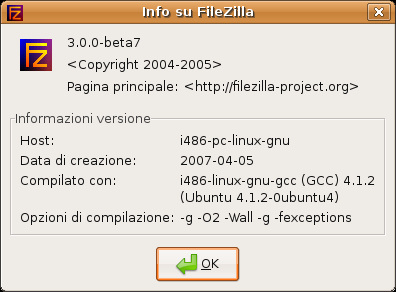These days I do my web design in a coffee shop using a smart leather satchel that I use to carry a Surface Pro (with digital pen), a bluetooth keyboard and mouse, a stand for getting just the right viewing angle, a Galaxy Note and a pad of paper to sketch out ideas on. Typically I will work using a combination of software ranging from Sketchbook to Dreamweaver, and I tend to feel like something of a bad-ass tech junkie when I do it (cue lots of strong coffee and Tron music).
Technology has progressed to the point where I can now enjoy full productivity wherever I am in the world – and where all of it is an intuitive joy to use. But for all the fancy hardware and software I have running, I find that I still often end up coming back to some old favourites that haven’t really changed that much over the years. These are the classic tools that web developers have probably been enjoying for the last decade – and they’re still just as useful and enjoyable to use as ever.
Table of Contents
Notepad
Notepad is pretty much as simple as your software can come – being nothing more than a text editor with no fancy formatting options available. You can find and replace, and you can turn ‘Word Wrap’ on and off, but that’s about as high tech as things get with this particular application.
But that doesn’t stop Notepad from being incredibly useful in a variety of situations – and still one of the easiest and quickest ways to write HTML, JavaScript and PHP if you’re confident with your ability. Simply save your files as HTML files then open them up in the browser to see if they look right. Of course there are more powerful alternatives available such as the very-good ‘Super Notepad’, but really Notepad will provide you with everything you need while being quick and light and not taking up much space.
MSPaint
MSPaint is something of a wonder in that it still hasn’t changed despite being around for years. Surely it’s time that Microsoft developed a touchscreen version of this software for their Metro style interface, but until then it remains the same old Paint that we had on our 486 computers in 1995.
So why would you possibly want to use it today? Well essentially because its small number of features mean that it’s particularly quick for making quick edits. As long as you don’t need transparencies or fancy effects, MSPaint is perfectly suited to quickly cropping an image, grabbing a colour or drawing lines and squares. Until Sketchbook and PhotoShop load in seconds, have simple shape tools and allow you to alter the image attributes more easily, there will always be a place in my heart for MSPaint.
FileZilla
It doesn’t date back quite as far as MSPaint or Notepad, but FileZilla is still an FTP client that has been around for a while and hasn’t really changed much in that time. This is just fine by me though – as it is it’s quick to load and to transfer files, it has a simple and clean interface and it never goes wrong. So if it ain’t broke – don’t fix it!
Real Notepads
And finally it’s sometimes worth going really old school and using a classic notepad and pen. This is still the most flexible form of input, and it means that you can jot notes without taking up room on the screen. The original and still the best!
Of course these are some examples of software that I do still use. Plenty of other examples of things I once used daily – like MSN Messenger (now just Skype) and Napster are now gone. Others, like Winamp, have continued but essentially been replaced with better alternatives or have been modernised to the point where really they’re no longer the same programs (like most of MSOffice).
So what’s the point of all this? Simply to remind you that sometimes old software is still the best candidate for the job. New developments are great and should be celebrated, but every now and then there is merit in sticking with something simpler and sticking with something you know.





